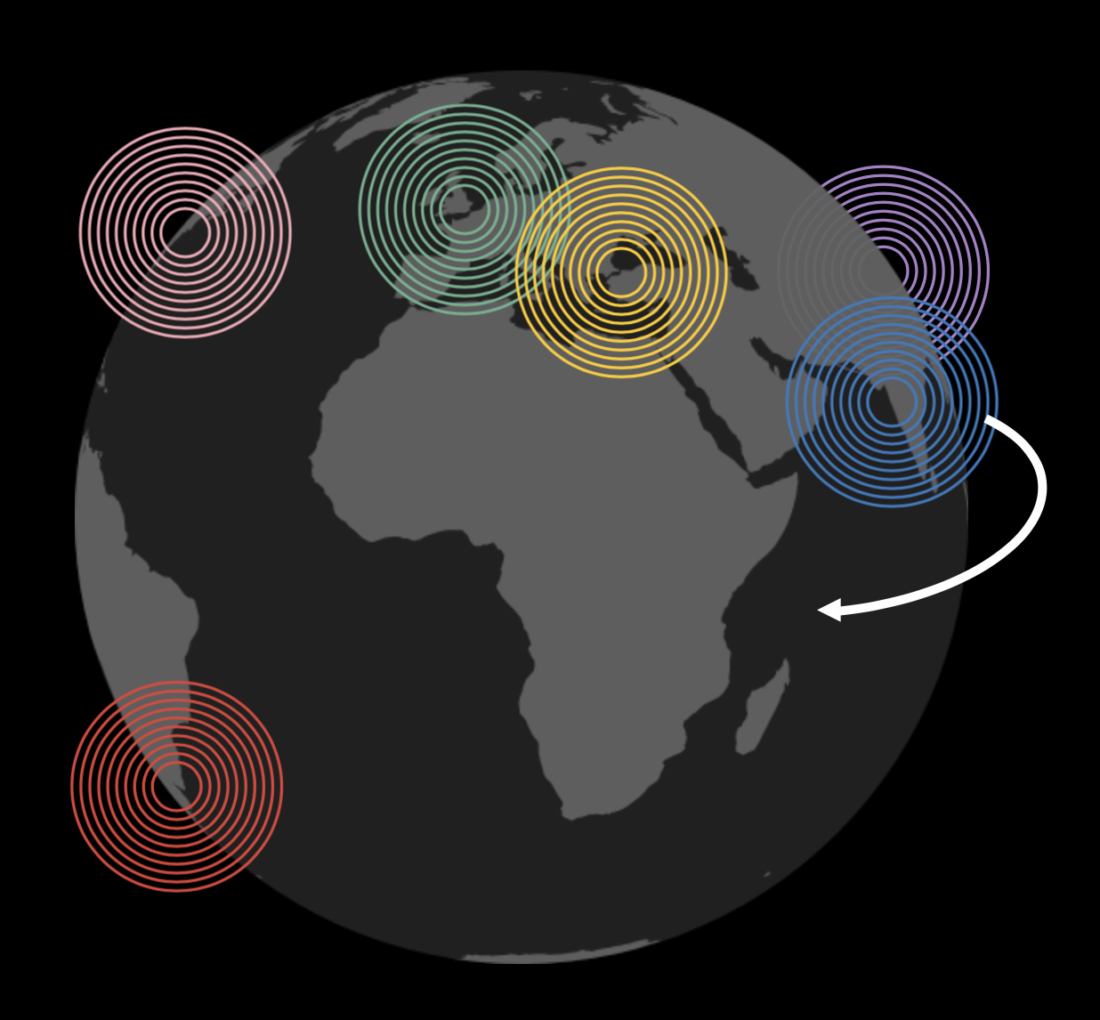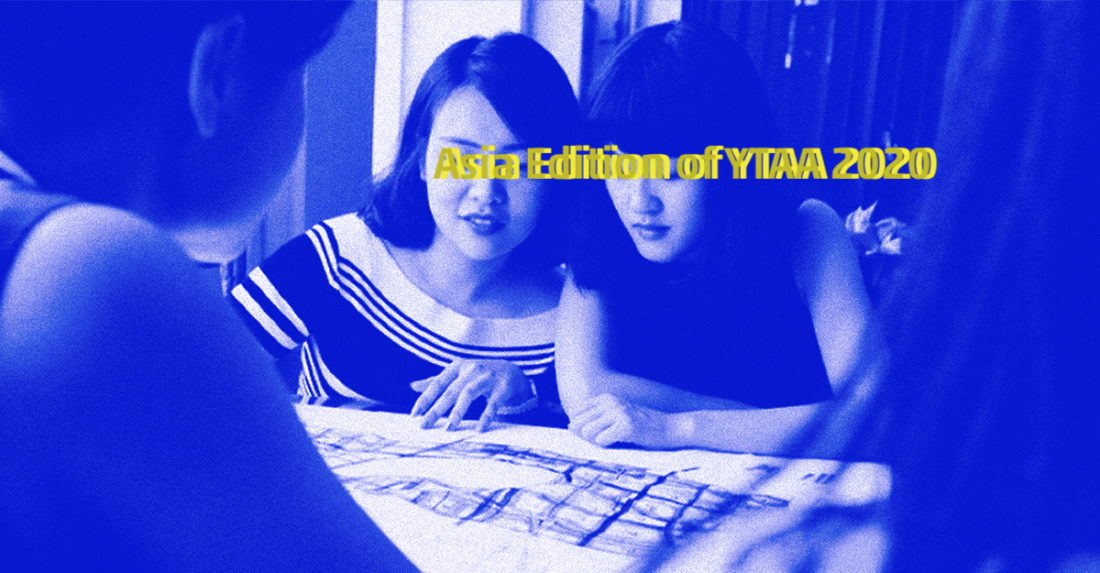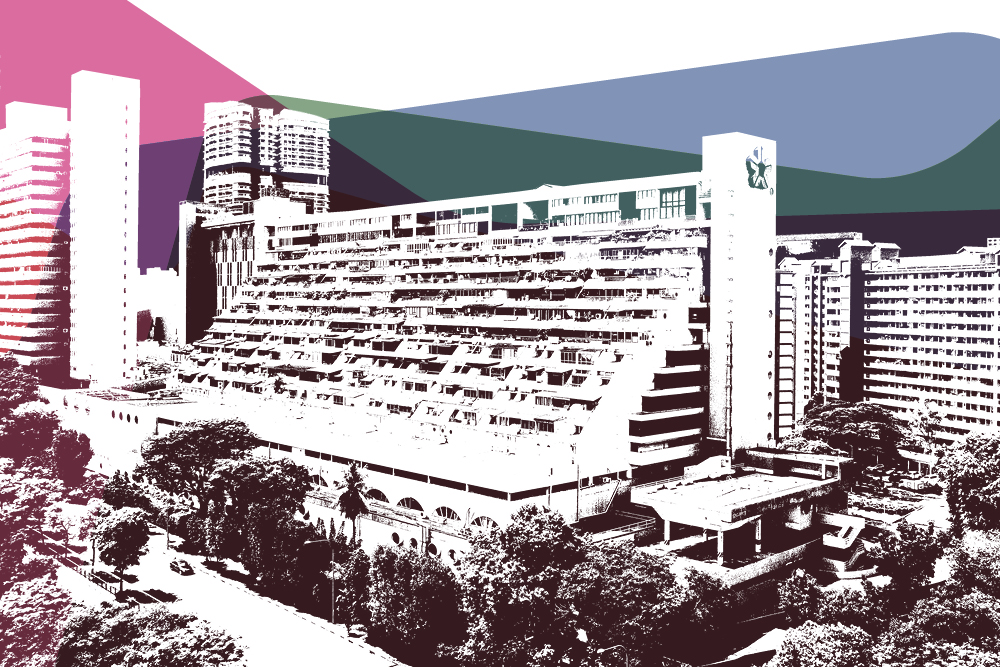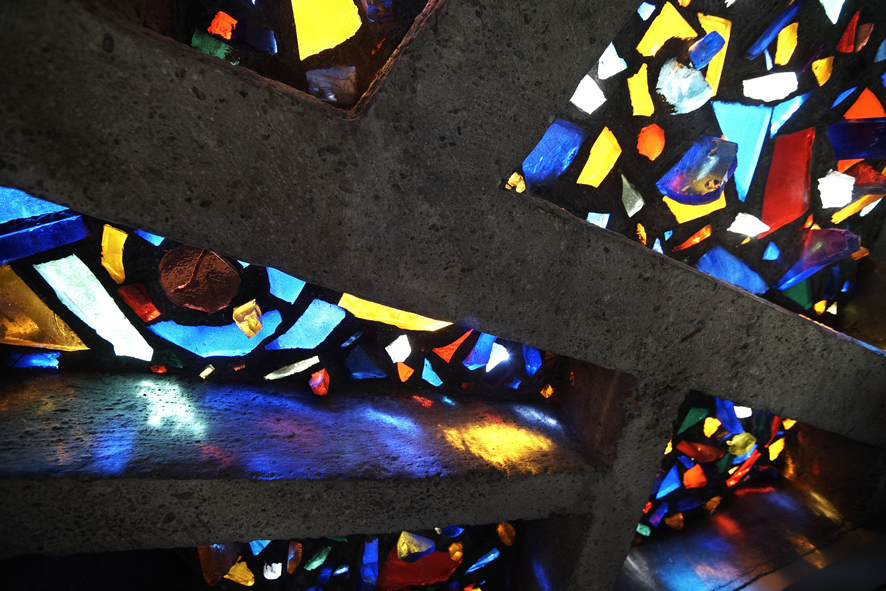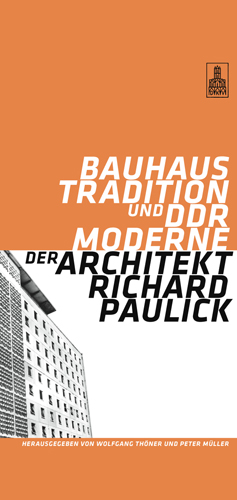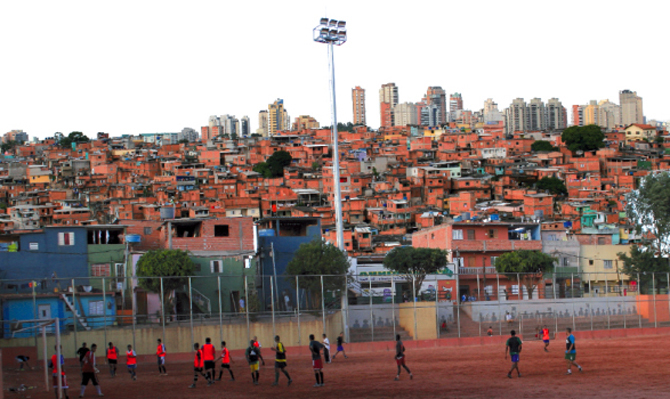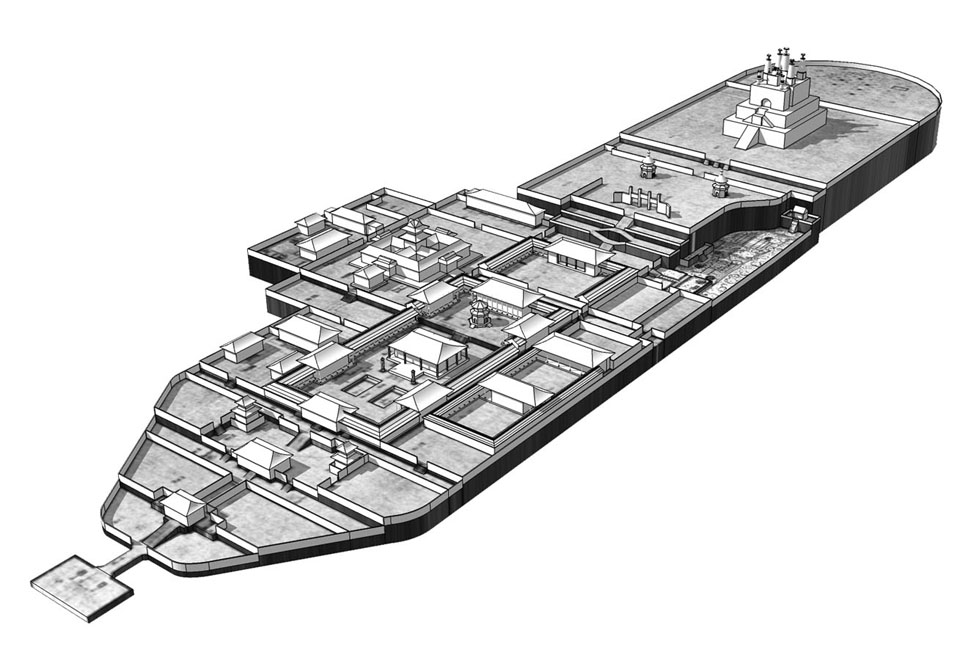Mangunwijaya
learning from mangunwijaya
3 May 2024 to 31 December 2024
Learning from Mangunwijaya focuses on the architectural heritage of Yusuf Bilyarta Mangunwijaya (1929–1999), an Indonesian Catholic priest, writer, political activist, and architect. Mangunwijaya’s architectural legacy was shaped significantly by his studies in Aachen, Germany.
This project examines the enduring impact of his ideas on current generations of Indonesian architects and their relevance to contemporary developments in the region. Through a student workshop, exhibition, documentary, and symposium, Learning from Mangunwijaya aims to contextualize his work in the present day and foster broad local, regional, and international engagement.
Initiators:
Sally Below, Moritz Henning, Eduard Kögel
Curatorial team:
Avianti Armand, Putu Ayu Pramanasari Agustiananda, Sally Below, Moritz Henning, Eduard Kögel, Setiadi Sopandi, Nensi Golda Yuli
Shanghai_Archive
I contributed some aspects to the Metromod Archive Shanghai:
_ MODERN HOMES
_ RICHARD PAULICK
_ ST.JOHN’S UNIVERSITY
_ EXHIBITION OF PRINTS BY KÄTHE KOLLWITZ
_ LYCEUM THEATRE
_ WARD ROAD GAOL
_ VOICE OF CHINA
Asia Edition of YTAA 2020
The jury of the Asia Edition of YTAA 2020 is composed of 5 renowned specialists representing diverse schools and trends in the fields of architecture and architectural critique.
Momoyo Kaijima (Chairwoman)
Principal of Atelier Bow-Wow, Tokyo, Japan
Minsuk Cho
Architect founder of Mass Studies, Seoul
Chitra Vishwanath
Principal Architect and Managing Director of BIOME, Bengaluru
Li Xiangning
Deputy Dean, College of Architecture & Urban Planning, Tongji University, Shanghai
Eduard Kögel
Berlin based critic and researcher
Southeast Asian Modernism
Encounters with Southeast Asian Modernism sheds light on the history, significance and future of socially relevant design ideas of postcolonial modernism in the region and addresses them in the context of the Bauhaus centenary 2019 in Germany. With partners in four selected cities – Jakarta, Phnom Penh, Singapore and Yangon – Encounters explores the impact of modernism at the crossroads between early globalisation, local conditions, political upheaval and the search for an independent identity, starting with the period of upheaval that accompanied the transition to independence after colonial times.
Link is here
Chen Kuen Lee
30.10.15 – 30.12.15 ifa-Galerie Stuttgart »Kulturtransfers #8: Chen Kuen Lee. Hauslandschaften«
Forschungen und Publikationen zu dem deutsch-chinesischen Architekten Chen Kuen Lee, sowie zu Hans Scharoun und Hugo Häring.
Bilder: (c) Eduard Kögel
Conference on the 100th anniversary of Chen Kuen Lee Tainan, Taiwan October 2014.
Eduard Kögel: Chen Kuen Lee in the context of Post-War German architecture: the building as landscape / the landscape as building.
Eduard Kögel: Erweiterung der Architektur. Gefalteter Raum, bewohnte Landschaft, in archithese, 6/2013, S. 38–43.
Eduard Kögel: Feng Shui in Germany. The Transculturation of an Exotic Concept by Hugo Häring, Hans Scharoun and Chen Kuen Lee, in Florian Reiter (Hrsg.): Feng Shui (Kan Yu) and Architecture. Berlin, 2011, S. 113–128.
Eduard Kögel: Organic architecture with Chinese taste – Chen Kuen Lee (1915-2003), in world architecture (Peking) 5/2004, S. 80–82 (chin).
Eduard Kögel: Die Wohnlandschaften von Chen Kuen Lee – Ein Nachruf, in Arch+ 168 – Feb. 2004 S. 20–21.
Boerschmann Symposium
Eduard Kögel: Researching Ernst Boerschmann, in China Heritage Quarterly, no. 24, 12/2010
Eduard Kögel: Symposium on Ernst Boerschmann, in China Heritage Quarterly, no. 25, 4/2011
Ernst Boerschmann and Research in Chinese Architecture,
organized by Eduard Kögel 13/14 January 2011
With contributions by Hartmut Walravens, Wang Guixiang, Ho Puay-peng, Xu Subin, Alexandra Harrer, Hirase Takao, Eva Sternfeld, Martin Hofmann, Chang Qing, Guo Qinghua, Klaas Ruitenbeek, Peter Herrle, Eduard Kögel
Richard Paulick
Eduard Kögel: Ein Knoten im Netz. Richard Paulick in Shanghai, in Burcu Dogramaci/Karin Wimmer (Hrsg.): Netzwerke des Exils. Künstlerische Verflechtungen, Austausch und Patronage nach 1933. Berlin: Reimers, 2011: S. 223–243.
Eduard Kögel: Richard Paulick und der Wettbewerb Stalinallee, in Carsten Krohn (Hrsg.): Das Ungebaute Berlin: Stadtkonzepte im 20. Jahrhundert. Berlin 2010, S. 134–136.
Eduard Kögel: Richard Paulick: Vom Neuen Bauen zur Stadt der „Nationalen Tradition“, in Frank Betker, Carsten Benke, Christoph Bernhardt (Hrsg.): Paradigmenwechsel und Kontinuitätslinien im DDR–Städtebau. Neue Forschungen zur ostdeutschen Architektur- und Planungsgeschichte. IRS Berlin Erkner, 2010, S. 331–358.
Eduard Kögel: Organische Dezentralisation, in Archithese 6/2008, S. 74–79.
Eduard Kögel: Zwei Poelzigschüler in der Emigration: Rudolf Hamburger und Richard Paulick zwischen Shanghai und Ost-Berlin (1930–1955).
Two students of Poelzig in emigration: Rudolf Hamburger and Richard Paulick between Shanghai and East-Berlin (1930–1955) (Dissertation Bauhaus Universität Weimar, 2007).
Eduard Kögel: The Glamourboy of Hongkew. Emigration und Politik – Richard Paulick in Shanghai (1933-1949), in Wolfgang Thöner, Peter Müller (Hrsg.): Bauhaus Tradition und DDR Moderne. Der Architekt Richard Paulick. München/Berlin, 2006.
Re-act Lab
Re-act Lab: São Paulo Architecture Experiment
with ANCB Research Partners Elisabete França and the Secretaria Municipal de Habitação of the city of São Paulo (Sehab) and S.L.U.M. Lab Columbia University, New York
12 – 22 August 2010
BACKGROUND
The ANCB series Re-act Lab has a potential-focused rather than problem-focused agenda. It confronts the particular challenges of cities or regions throughout the world by facilitating transdisciplinary enquiry into appropriate and responsible actions in architecture and urbanism. This 10-day Re-act Lab research studio will introduce a group of advanced students from across the world to the realities of Brazilian cities and provide the wider public with internal and external perspectives on these. In a series of public lectures and discussions the studio will: introduce São Paulo’s metropolitan area by revealing the contrasting morphologies and urban tissues produced over time; address the critical role of everyday life in the experience of urban space; question the possibilities created for architecture and urban planning when housing basic municipal services-key structures in improving quality of urban life; and highlight the need to develop partnerships between the city planning authorities and urban pioneers, in order to build liveable cities at the beginning of the 21st century.
PUBLIC LECTURES
Date: August 12 and 13 2010
Place: ANCB, Christinenstr. 18-19 (Pfefferberg), 10119 Berlin
Programme
Thursday, August 12 2010
3.00pm – 6.30pm
Welcome
Hans-Jürgen Commerell, Director ANCB
Introduction
Alfredo Brillembourg and Hubert Klumpner, S.L.U.M. Lab, Columbia University, Marcos L. Rosa, Technical University Munich and Estúdio Tático, Eduard Kögel, Habitat Unit TU Berlin
The informal city in the 21st century: plans and projects
Elisabete França, Secretary of Housing Department City of São Paulo (Sehab)
Urban development planning in Berlin – current framework conditions and projects
Reiner Nagel, Berlin Senate Department for Urban Development
6.30 pm
Exhibition Openings: Measure of Man-Measure of Architecture and The Informal City of Century XXI
Tempel der Azurblauen Wolken
Tempel der Azurblauen Wolken in den Westbergen nahe Beijing.
Abb. (c) Eduard Kögel
- 1
- 2





